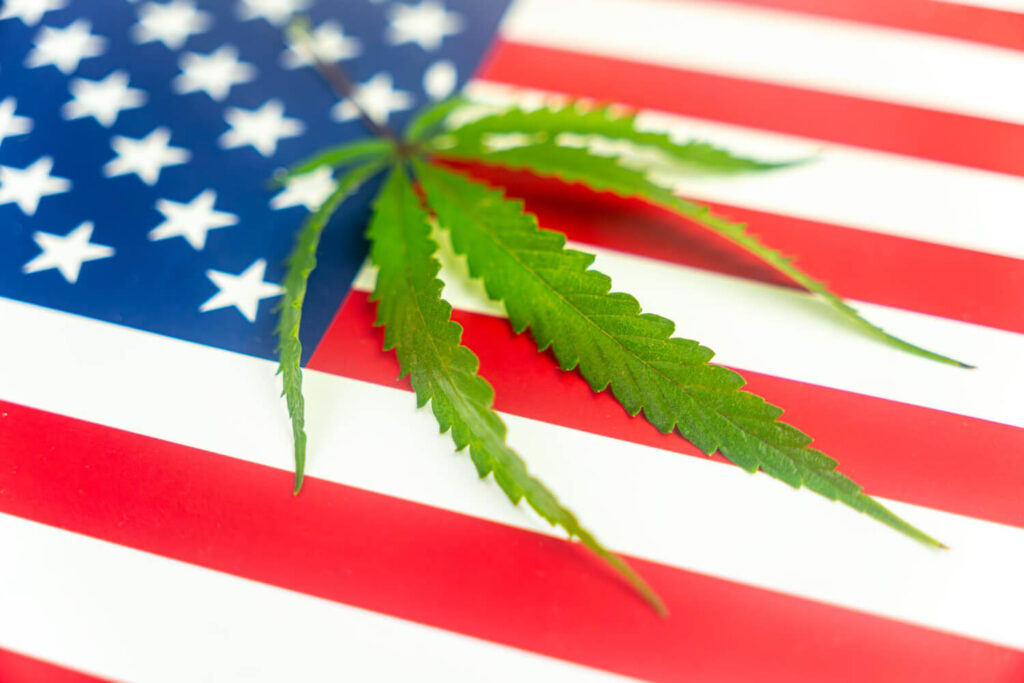While thinking of using THCV, one of the most popular CBD variants, you must have wondered, ‘Is THCV Legal?’.
The reason for this is the fact that the legal status of THCV and all other cannabinoids differs greatly from one place to the other.
People should know better if using THCV in their locality is considered safe or not.
Federal Legality of THCV
As far as the legal status of THCV is considered, you might feel good to know that THCV enjoys legal status in the United States, courtesy of the 2018 Farm Bill.
Enacted in 2018, the Farm Bill not only legalized THCV but also various other cannabinoids. As a result, THCV products derived from hemp with 0.3% THC or less are now federally legal throughout the entire United States.
The federal legality of THCV facilitates convenient online access for consumers, allowing them to order THCV products and have them delivered to their homes, provided they reside in a state where such products are legal.
However, it’s important to note that despite federal legality, THCV may not be permitted in every state. It is always advised to take care of the set rules and regulations in your state to know what is the current status of THCV in your region.
The United States grants states the authority to establish and regulate their laws, even if they deviate from federal regulations.
State-by-State Legality Overview
The best or worst part about THCV and other cannabinoids is that their respective regulations undergo frequent updates.
This ensures or highlights the importance of staying vigilant about the legality of compounds in your region. If uncertainty exists regarding the legal status of a particular cannabinoid, thorough research is advisable to ensure compliance with the law.
Fortunately, THCV enjoys legality in the majority of states, making it easily accessible for many residents.
However, for those residing in one of those states currently restricting THCV, seeking it out may necessitate travel to a location where its use is permitted.
Here is a state-by-state overview of the legal status of THCV.
| Allowed For Recreational Use | Allowed For Medicinal Use Only | Allowed For Limited Medicinal Use | Decriminalized | Fully Illegal |
| Alaska | Alabama | Texas | Connecticut | Idaho |
| Arizona | Arkansas | Delaware | Kansas | |
| California | Connecticut | Hawaii | Nebraska | |
| Colorado | Delaware | Illinois | South Carolina | |
| Illinois | Florida | Maryland | Tennessee | |
| Maine | Georgia | New Hampshire | Wyoming | |
| Massachusetts | Hawaii | New Mexico | ||
| Michigan | Louisiana | North Dakota | ||
| Montana | Maryland | Ohio | ||
| Nevada | Minnesota | Oregon | ||
| New Jersey | Missouri | Rhode Island | ||
| Oregon | Mississippi | |||
| South Dakota | New Hampshire | |||
| Vermont | New Mexico | |||
| Washington | New York | |||
| Washington D.C. | North Dakota | |||
| Ohio | ||||
| Oklahoma | ||||
| Pennsylvania | ||||
| Rhode Island | ||||
| Utah | ||||
| Virginia | ||||
| West Virginia |
Nevertheless, it is crucial to acknowledge that the legal status of cannabis is subject to change.
Furthermore, laws may differ among states, and specific jurisdictions may impose varying regulations.
Hence, it is advisable to consistently consult with local authorities or legal professionals for the latest and most accurate information.

The Impact of State Laws on THCV Legality
Although THCV is federally legal due to the 2018 Farm Bill, individual states possess the authority to establish their regulations concerning cannabinoids, including THCV.
Here are some key points to consider regarding the impact of state laws on THCV legality:
Varied Approaches
States have different attitudes toward cannabis-related compounds, and these attitudes can vary widely. Some states fully embrace the federal legalization of THCV, while others may have more restrictive laws or outright prohibitions.
Medical Use vs. Recreational Use
Some states may allow THCV for medical purposes only, while others may permit both medical and recreational use. The specific conditions for legal THCV use can vary, including requirements for medical prescriptions or patient registration.
State Legislative Changes
State laws are subject to change through legislative processes. New bills and amendments can impact the legal status of THCV, so it’s important to stay informed about ongoing developments.
Enforcement Practices
The enforcement of cannabis-related laws can vary, with some states having more lenient enforcement policies and others taking a stricter approach.
The Role of Regulatory Bodies (FDA and DEA)
The regulatory framework for THCV in the United States is significantly shaped by two key federal agencies: the Food and Drug Administration (FDA) and the Drug Enforcement Administration (DEA).
Food and Drug Administration (FDA)
- The FDA plays a vital role in assessing the safety and effectiveness of pharmaceutical products, including those derived from cannabinoids.
- Although THCV is distinct from CBD and THC, the FDA has been actively involved in regulating CBD-containing products. It oversees the marketing and labeling of CBD products, particularly those that make therapeutic claims.
Drug Enforcement Administration (DEA)
- The DEA is responsible for enforcing controlled substances laws and regulations in the U.S.
- The DEA is involved in overseeing the legal cultivation of hemp, particularly regarding THC content. Hemp and its derivatives, including THCV, are legal at the federal level if they contain no more than 0.3% THC, as per the Agricultural Improvement Act of 2018 (2018 Farm Bill).
Practical Advice for THCV Consumers
If you’re contemplating the use of THCV, it’s crucial to keep some practical advice in mind to ensure a safe and positive experience.
Here are some key considerations for THCV consumers.
Legal Status
Verify the legal status of THCV in your state or jurisdiction. While it is federally legal, state laws may vary, and it’s crucial to be aware of local regulations.
Product Quality and Source
Purchase THCV products from reputable and transparent sources. Look for products that have undergone third-party testing to ensure quality and accurate cannabinoid content.
Dosage Information
Understand the dosage guidelines for the specific THCV product you’re using. Start with a low dose and gradually increase if needed, especially if you are new to cannabinoids.
Consult with a Healthcare Professional
Before incorporating THCV into your wellness routine, consult with a healthcare professional, particularly if you have pre-existing medical conditions or are taking other medications to avoid any side effects.





